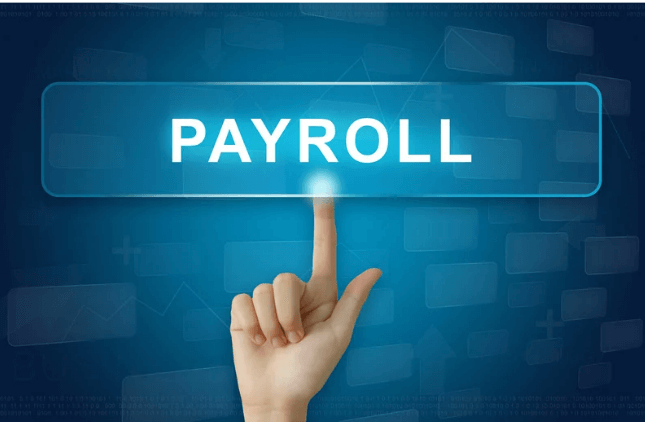Key Points:
1. Start by researching outsourcing firms, focusing on their experience, client portfolio, certifications, and delivery centers to shortlist suitable options.
2. Send a detailed Request for Proposal (RFP) to get a clear understanding of pricing, services, turnaround times, and quality assurance from potential partners.
3. Evaluate the firm’s infrastructure, security practices, and scalability during site visits, and assess their ability to manage change and maintain quality.
4. Perform a controlled pilot before fully committing and continuously monitor service performance, security, and contract terms to ensure long-term success.
Deciding to outsource your accounting work to an accounting outsourcing Agency is crucial. The first step is to do thorough research about various outsourcing firms and understand their service offerings. CPAs should search online, ask other accounting professionals for references, and check reviews on third-party sites. Check out the important Due Diligence Steps For CPAs When Choosing An Outsourcing Firm provided in this article.
Attending seminars where accounting outsourcing firms present can also provide useful information. During the research, take note of each firm’s experience in the industry, client portfolio, services provided, locations of delivery centres, and certifications held. Understanding these details will help shortlist suitable CPA outsourcing firms.
Crucial & key Due Diligence Steps for CPAs

The crucial key due diligence steps for CPAs are given below:
Sending Requests for Proposals
Once initial research narrows down the choices; the next step is to contact two to three shortlisted firms officially with a request for a proposal or RFP. The RFP should clearly outline the functions to be outsourced, expected turnaround times, work volume, deliverables specifications, pricing and payment terms required, and quality and monitoring expectations.
Asking firms to respond specifically to the RFP makes it easier to compare their proposals side by side on all crucial parameters. The proposal responses received will help evaluate the competency and suitability of each firm further.
Evaluating Capabilities
CPAs should then visit the shortlisted CPA outsourcing firms to evaluate their true capabilities. During the visits, check the firm’s delivery centre infrastructure, such as the workspace, equipment, bandwidth, and backup systems.
Meet the engagement managers who would handle the account and assess their understanding of the requirements through mock presentations or discussions. Ask for client references who can be contacted for unbiased feedback on service quality. Evaluating real capabilities in the field helps determine if the firm can deliver as proposed.
Assessing Quality Processes
Quality operations are crucial when entrusting work to another firm. Understand the outsourcing firm’s quality processes, like the documentation standards followed, review protocols in place before final deliverables, security and backup policies, and mechanisms for monitoring performance.
Assess if they have strong controls to ensure consistent, error-free work. Request to see any process or service level certifications held by the firm to demonstrate rigorous quality commitments. A demonstrated focus on quality assures work is completed efficiently with minimal reworks.
Checking Security Practices
Handling confidential financial and client information necessitates robust security practices for data protection. During due diligence steps, review the outsourcing firm’s security policies covering access controls, encryption protocols, physical safety of premises, employee screening, and data loss protection mechanisms.
Request to audit relevant security certifications like ISO 27001. Understand how they would keep your firm’s data separate from other clients. Strong security significantly reduces the risks of breaches when sharing sensitive material with the accounting outsourcing provider.
Evaluating Contract Terms
Once capability and quality checks are complete, CPAs must meticulously evaluate the outsourcing contract terms. Key points to examine include clearly defining the exact scope of services, expected turnaround times, billing schedules, pricing options and escalations, review protocols, confidentiality commitments, termination clauses, limitations on liability, dispute resolutions, and governance structure for account management.
Using an outsourcing legal expert can help negotiate a transparent, balanced agreement that is protective of your firm’s needs. Comprehensive contracts lay the groundwork for a solid long-term partnership.
Piloting the Engagement
Rather than transitioning the entire work suddenly, evaluating firms through a controlled pilot or “trial run” allows accurate testing of the outsorcerer’s abilities. Provide a small initial volume of less complex work to gauge turnaround times, check the quality of output, and receive client feedback.
Discuss issues observed openly with the accounting outsourcing firm and evaluate their willingness to take corrective action. Successful completion of pilots establishes confidence before ramping up full-scale operations. It makes it easier to renegotiate terms if needed before large commitments.

Monitoring Continuously
Even after partnering with an accounting outsourcing firm, CPAs must monitor service quality, turnaround times, and security closely on an ongoing basis. Instituting formal review meetings and reporting requirements keeps oversight consistently in place.
Use tools that allow access to the outsourcer systems to track performance and audit their quality certifications and security compliances annually. Periodic onsite inspections also help. Continuous improvement lies in transparent communication of both positives as well as issues spotted. Through active monitoring, CPAs ensure outputs keep meeting expectations as the partnership progresses long-term.
Considering the Location of Delivery Centers
The geographic location of an outsourcing firm’s delivery centres is important from both a quality and risk perspective. Onsite visits help gauge infrastructure and assess if centres are in stable, developed regions.
Delivery from countries sharing your time zone eases communication and real-time collaboration needs. However, work from lower-cost locations can achieve greater savings if the outsourcer has strong quality processes regardless of distance. CPAs must weigh their varying needs of cost, quality, and responsiveness.
Understanding Capabilities in Key Domains
Most CPA outsourcing firms provide services across domains like accounting, bookkeeping, finance, and taxation. However, in-depth domain expertise varies. During capability evaluation, CPAs should understand the outsorcerer’s experience levels and certifications in each critical domain relevant to their requirements.
For example, a firm with 15 years in bookkeeping and advanced QuickBooks certifications provides stronger capabilities in that area over others. Domain expertise determines the types of processes that can be outsourced confidently in the long term.
Evaluating Management of Change Processes
Outsourcing arrangements often evolve with additional requirements over time. So, CPAs must assess the firm’s ability to accommodate changes seamlessly. Understand their change management protocols for scope increases, timeline adjustments, and regulatory/compliance updates.
Can additional team members be deployed swiftly? A flexible outsourcer remains future-proof by streamlining change processes through formal communication channels and dedicated program managers.
Inspecting Resources and Scalability
Resources include employees, technology, and infrastructure that impact the quality and volume of work delivered. During facility visits, CPAs can get a sense of current resource levels.
They must also evaluate the firm’s scalability plans to continuously meet growing needs through additional hiring, expanded centres, and upgraded systems. An outsourcer should provide resource optimization roadmaps for the long term to inspire confidence in their ability to scale proactively with clients’ businesses.
Checking Financial Health and Stability
CPAs need assurance of the outsourcing firm’s financial stability to avoid disruptions due to cash flow or management issues. Ask for annual reports, ratings, or industry certifications that validate a solid financial footing and viable long-term strategies.
Stable income, low debts, adequate reserves, and strong profit indicate an outsourcer remains investment-worthy as a collaborative partner. Financial health checks rule out undercapitalized fly-by-night players who are unable to deliver consistency.
Wrapping Up
Outsourcing accounting works promises greater efficiency but requires judicious partner selection validated through careful due diligence steps, as discussed in this article.
Following these thorough research, evaluation, contract creation, and monitoring steps help CPAs choose only outsourcing firms with adequately robust quality, security, and accountability to keep their clients well-served during long-term collaborations. By taking an informed, step-by-step decision supported by transparent trial runs and reviews, CPA firms achieve the optimal balance of cost reduction and control essential in a rising market.
Frequently Asked Questions (FAQs)
Q.1: What is the due diligence process in outsourcing?
Ans 1: It is important to consider outsourcing due diligence steps differently than considering it as a one-time event or continuous procedure. To make necessary adjustments to the due diligence checklist, a business must regularly monitor and assess the performance, compliance, and risk of its IoT vendors.
Q.2: What should a business owner consider before deciding to outsource?
Ans 2: When deciding whether to outsource, two factors are crucial: technology and resources. Inquire about the technology and tools the vendor is going to use for your project, as well as their ability to meet all of your outsourcing requirements.
Q.3: What are the 4 P’s of due diligence?
Ans 3: Four intangible factors—passion, perspective, purpose, and progress—can also influence manager selection in addition to the four fundamental principles of people, performance, philosophy, and process. Managers that are genuinely committed to their profession and genuinely want to make a difference are considered enthusiastic.
Also Read:




